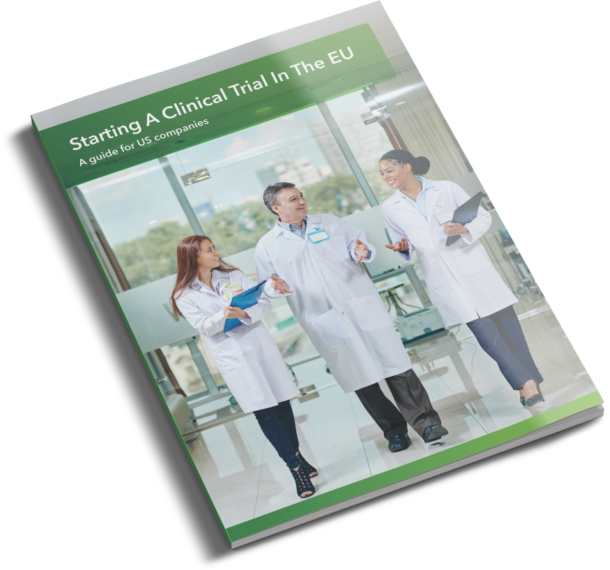Cardiovascular clinical trials are essential in developing interventions like treatments and medical devices for a wide range of cardiovascular diseases. The sheer size and complexity of cardiovascular clinical trials is just one of the factors that make this therapeutic area stand out. It’s also one of the reasons ensuring you have cardiovascular therapeutic expertise is so important to success. Here, we share some of Siron Clinical’s insights.
According to the World Health Organization, cardiovascular diseases (CVDs) are the world’s leading cause of death, with 17.9 million people dying due to heart attacks, strokes, and other CVDs every year. Clinical research has led to many successful interventions to prevent heart disease, such as aspirin and behavioral guidance, and to treat it, such as surgeries and medical devices like stents and pacemakers.
As of May 2023, clinicaltrials.gov lists almost 56,000 cardiovascular clinical trials, reflecting the leading position the cardiovascular therapeutic area has in clinical research. Each cardiovascular clinical trial is unique, and the phase of the research, the size of the trial, and the nature of the intervention all have an impact on how you will run the trial, as well as the challenges you may encounter.
At Siron Clinical, we have worked on many different cardiovascular trials over the last 25 years, both interventional and medical device studies. Our cardiovascular therapeutic expertise and experience covers hypertension, left ventricular heart failure, coronary artery bypass graft surgery, renal ablation and many other areas.
In this blog post, we share five factors to consider when running a cardiovascular clinical trial.
Put People at the Heart of Your Cardiovascular Clinical Trial
One factor that affects all approaches outlined in this blog post is cardiovascular therapeutic expertise. When you’re running a cardiovascular clinical trial, ensuring you have access to cardiovascular therapeutic expertise can help you better design the trial, train the team, recruit and retain participants, monitor progress, and analyze results.
This may pose a challenge, particularly for small biotech companies with a low FTE count. But there are many options beyond hiring experts in-house. For example, you could partner with a CRO specializing in cardiovascular research. An increasing number of sponsors are choosing to engage CROs on a functional service provider (FSP) basis, meaning you get to incorporate cardiovascular therapeutic expertise into your clinical trial team without shouldering the risk of a full-service contract or FTE.
Be Open to New Ways of Thinking
Traditional approaches to clinical trials have led to the cardiovascular interventions we have today, but that doesn’t mean clinical research always has to follow the same path, or indeed focus on a single condition. In a recent review, US researchers suggest moving away from the rigid ‘explanatory’ design of randomized controlled trials towards a more ‘pragmatic’ approach that makes it easier to generalize the findings to the broad population affected by CVDs. As the authors of the review explain:
“In pragmatic RCTs, interventions are tested in patients who are broadly representative of the condition being studied, and the study is aligned with routine clinical care to reduce costs and organizational burden.”
If appropriate, considering approaches like this could help you incorporate benefits like those of point-of-care research and innovative trial design when you trial your intervention. To find out about new approaches, you could explore the latest published studies, speak to researchers and other sponsors, and even look at trials outside of the cardiovascular therapeutic area for inspiration.
Apply Cardiovascular Therapeutic Expertise to Plan Carefully
Once you have chosen the approach that best suits your intervention, you will need to pay careful attention to the planning phase – and this is where cardiovascular therapeutic expertise can play an important role. If you don’t have an expert on your team, consider working with an external advisor to apply their knowledge in the planning phase and set a solid foundation for the trial.
Selecting an endpoint can be complex for cardiovascular research, as you want to make sure it reflects the benefit of your intervention. Having clarity around the endpoints is an important part of the broader planning phase, which is essential for regulatory submissions. Cardiovascular trials can be very large and span many sites and even countries, making it all the more important to make sure your documentation is complete and correct before submission.
Put People at the Heart of Your Cardiovascular Clinical Trial
Like in many other areas, cardiovascular clinical trial recruitment can be challenging. Your cardiovascular intervention may have a very large target population – for example, an estimated 15 million people globally suffer a stroke. Defining the eligibility criteria for your trial is an important step, as you want to make sure you include people who will benefit and provide an accurate picture of the safety and efficacy of your intervention. When doing this, keep the broader population in mind and make sure your participants represent the people who will ultimately use your intervention, including by focusing on diversity.
As we explored in another blog post, there are ways to maximize patient recruitment and retention, including offering incentives and communicating effectively. In addition to cardiovascular clinical trial recruitment, retention is particularly relevant to many trials that are longer term. Be sure to keep people at the heart of your trial, considering decisions from their perspective throughout.
Collaborate to Boost Cardiovascular Therapeutic Expertise and Networks
Cardiovascular is a major therapeutic area for clinical research, and it is also a competitive one. This means there are likely to be other teams working to prevent or treat the same condition as you. Keep up-to-date with other research happening in your field and build connections with other teams. While you may not collaborate directly, open communication can help avoid issues around competing for suitable sites and participants. It may also bring opportunities for joint visibility.
In addition to building connections with other researchers and sponsors, it is helpful to establish relationships with specialist cardiac sites and experts wherever you want to run the trial. Strong relationships can help you throughout the course of your trial, from planning to publishing, helping you get your intervention to those who need it.
At Siron Clinical, we have built up the cardiovascular therapeutic expertise, experience, and connections that can help you succeed with your cardiovascular trial. Contact us to find out more and get started.




0 Comments